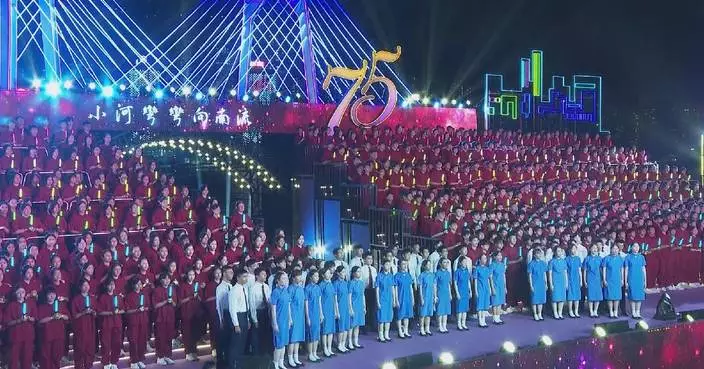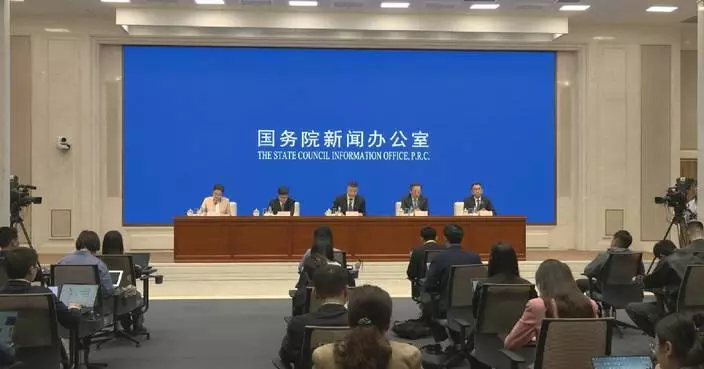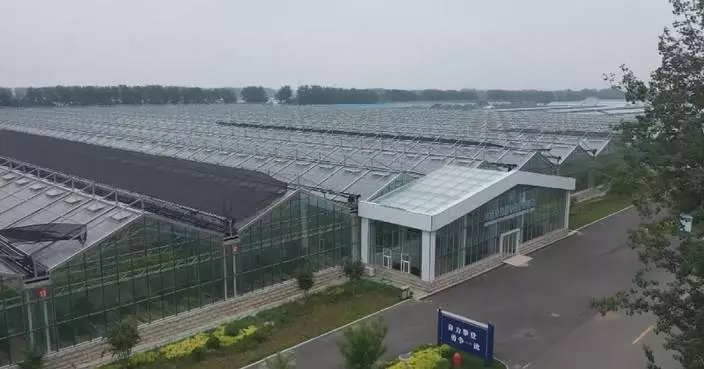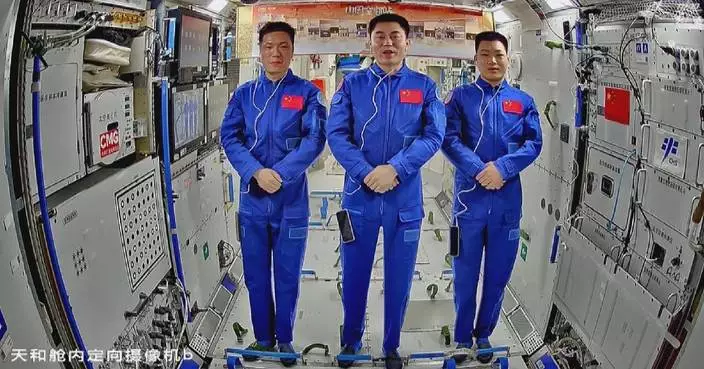China has blazed a path of peaceful development rather than colonial aggression, offering the world an alternative to the current hegemonic global model, said John Pang, a former senior counsel to the Prime Minister's Office of Malaysia.
This year's National Day, which falls on Oct. 1, marks the 75th anniversary of the founding of the People's Republic of China. Ahead of the National Day, Pang sat with the China Global Television Network (CGTN) to talk about China's achievements over the past decades and the significance of its rise and trade for the rest of the world, particularly the Global South.
"In the full context of these 75 years, it is three quarters of a century, the most important achievement of China's growth story over the last decades is the manner in which it has been accomplished. And that is without structural dependency on imperialism and war. It's different. And because it is different, it's very, very important. It's an alternative that we didn't have before. Without this alternative, people might not have thought this is possible," Pang said.
He noted that the dependence on war and imperialism has been structural to the development of the West, as each of its major economies has directly or indirectly depended on a political economy, on a global political economy sustained by colonialism, by extractive relationships secured at the barrel of a gun.
The uniquely non-colonial, non-imperialist path of China is truly something new. It is an achievement of the world and of historic importance. It is going to change the nature of the world system. It is going to enable the development, the economic unshackling of the Global South, Pang said.
"To understand the full significance of the Global South's growing trade and investment ties with China, I think we have to appreciate the issue in terms of the old global political economy, that the rise of China is upending and putting to an end. That global political economy was based on dollar-denominated external debt, on crippling debt actually for the developing world, on chronic financial crises. They delivered massive returns to a frontier financial class, a concentrated wealth and drove inequality both in the Global South and the Global North. In this global political economy, the prospect of becoming a 'developed economy', whatever that means, was dangled in front of developing countries of the Global South as a carrot on the stick in front of the beast of burden. You were by design never going to reach. It's a growth model only for perpetual subordination of the Global South to the interests of the West, or the Global North," Pang said.
He added that China's trade with the Global South is rooted in the real economy rather than financial bubbles, thus reducing the risk of financial crises.
"What is the importance of the rise of China here is that, the trade ties of the Global South with China is that these ties connect the countries of the Global South with the Chinese economy and growth model. This is a model that is driven by investment, not debt, oriented toward the real economy, not financialization. In other words, it's different from the current hegemonic global model. The trade is what connects the global south, trading and investment to make it possible for it to plug into the industrial capitalism of China rather than the financial capitalism of the West. But more than that, its real significance is to plug the Global South for the first time in hundreds of years, actually, into an economic dynamism in which they are not by design. And structurally, the hewers of wood and drawers of water, in which they are not by design lined up to be exploited by monopoly capital," Pang said.

China creates alternative path of non-colonial, non-imperialist development: Malaysian expert









